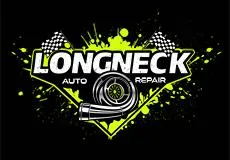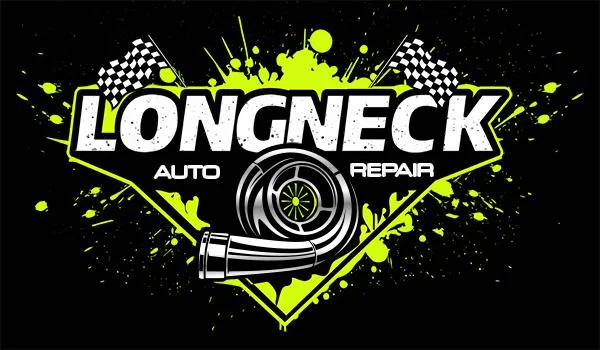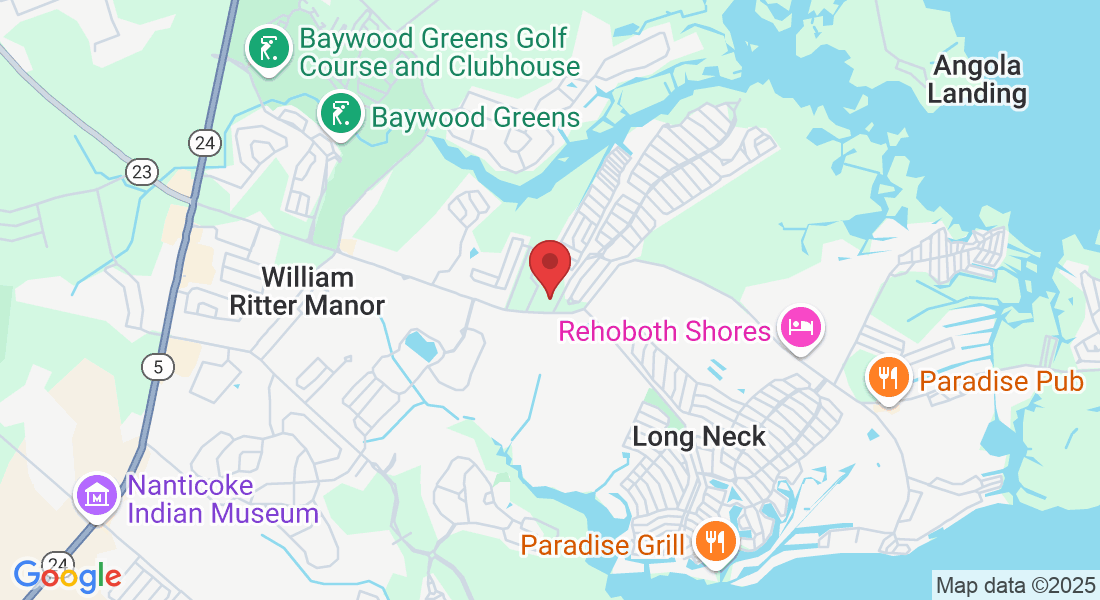Welcome To MILLSBORO'S BEST AUTO REPAIR Co.
Multi-POINT INSPECTION

Our Multi-point inspection provides a clear, visual summary of their vehicle's condition, and helps the owner plan and prioritize needed repairs.
Inspection starts at $240 and includes:
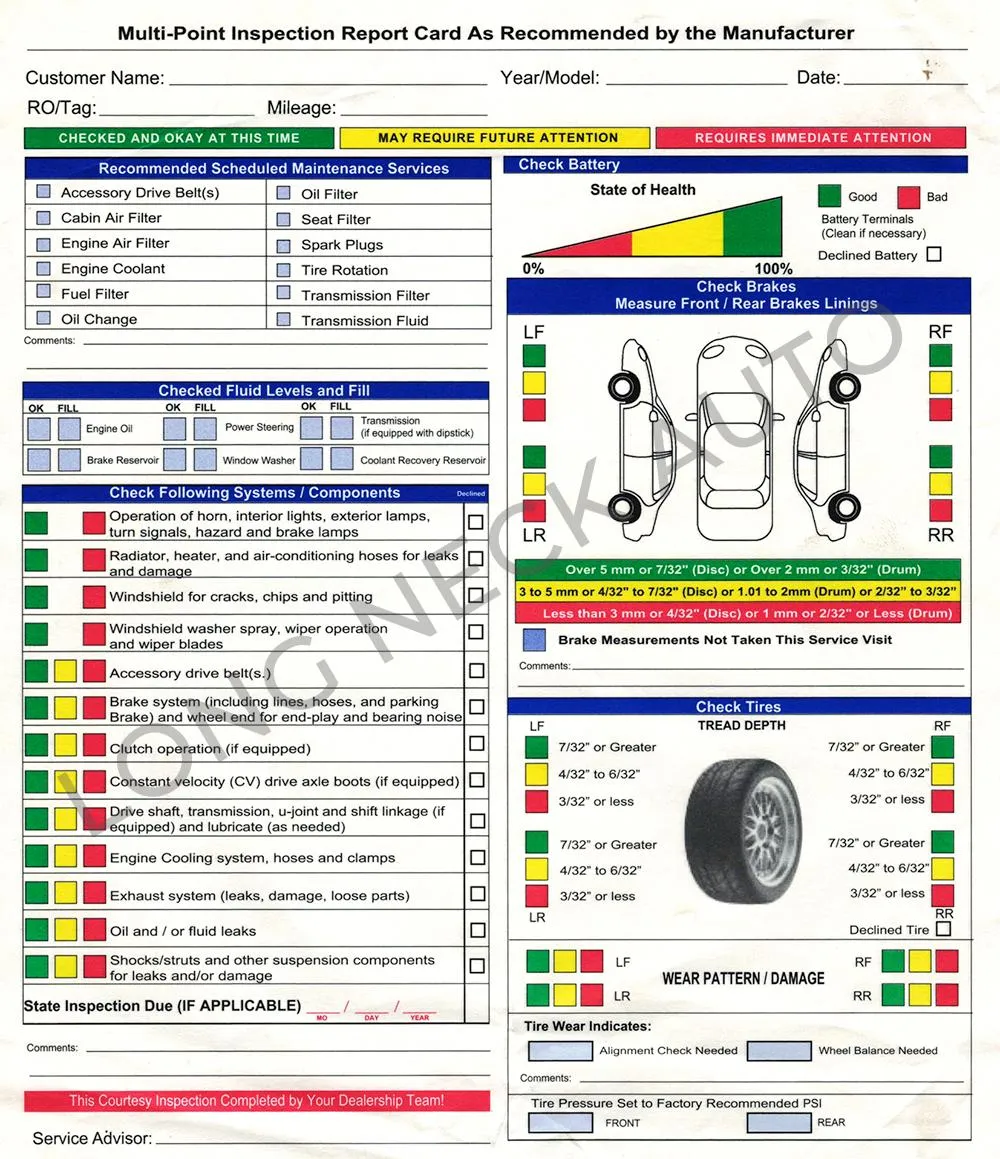
1. Overall Vehicle Health Check
Green (✔️ Checked and Okay) – No action needed
Yellow (⚠️ May Require Future Attention) – Monitor or plan service soon
Red (❗ Requires Immediate Attention) – Needs urgent repair/service
2. Scheduled Maintenance Services Checklist
Advises on whether the following services are due:
Oil change & oil filter
Air filters (engine & cabin)
Spark plugs
Tire rotation
Transmission filter/fluid
Fuel filter
Coolant
Seat filter (if applicable)
3. Checked Fluid Levels and Fill
Technician marks levels of:
Engine oil
Power steering fluid
Brake fluid
Coolant reservoir
Transmission fluid (if applicable)
Windshield washer fluid
Each fluid is marked as:
OK
Needs Fill
Not Checked
4. Systems & Components Check
Inspection of essential systems:
Lights, horn, wipers, washer spray
Heating and A/C systems
Windshield condition
Belts, hoses, and exhaust system
Suspension, shocks, and struts
Brake system (lines, wheel end-play, parking brake)
Drive train & clutch components (if equipped)
CV boots, drive shaft, U-joints
Engine cooling system
5. Battery Test
Shows State of Health using a meter (Good → Bad)
Notes on battery terminal condition
Indicates whether the battery is declined and needs replacement
6. Brake Inspection
Brake pad/shoe lining thickness measured for:
LF (Left Front)
RF (Right Front)
LR (Left Rear)
RR (Right Rear)
Color-coded ranges:
Green: Over 5mm or 7/32"
Yellow: 3–5mm or 4/32"–7/32"
Red: Less than 3mm or 4/32"
Notes if measurements weren’t taken during the visit
7. Tire Check
Includes:
Tread Depth Measurement
for all 4 tires
Wear Pattern/Damage
identified per tire
Notes if any tire has been declined by the client
Additional Notes:
Indicates if
alignment or wheel balance
is needed
Pressure checks for front and rear tires
Reminder to set tire pressure to
factory-recommended PSI
8. State Inspection Date
Room to record when the next state inspection is due, if applicable.
9. Advisor and Comments Section
Provides:
Personalized notes or recommendations from the technician
Name of the
Service Advisor
completing the inspection
$240+
Multi-Point Vehicle Inspection
These are often overlooked but critical to long-term performance and reliability. During your inspection, our team can evaluate the following systems:
Cooling System & Radiator Inspection
Recommended For: All vehicles, especially those with 60K+ miles or a history of overheating
Frequency: Every 12 months or prior to hot summer driving
Purpose: Prevents engine overheating and internal damage caused by coolant leaks or clogged radiators
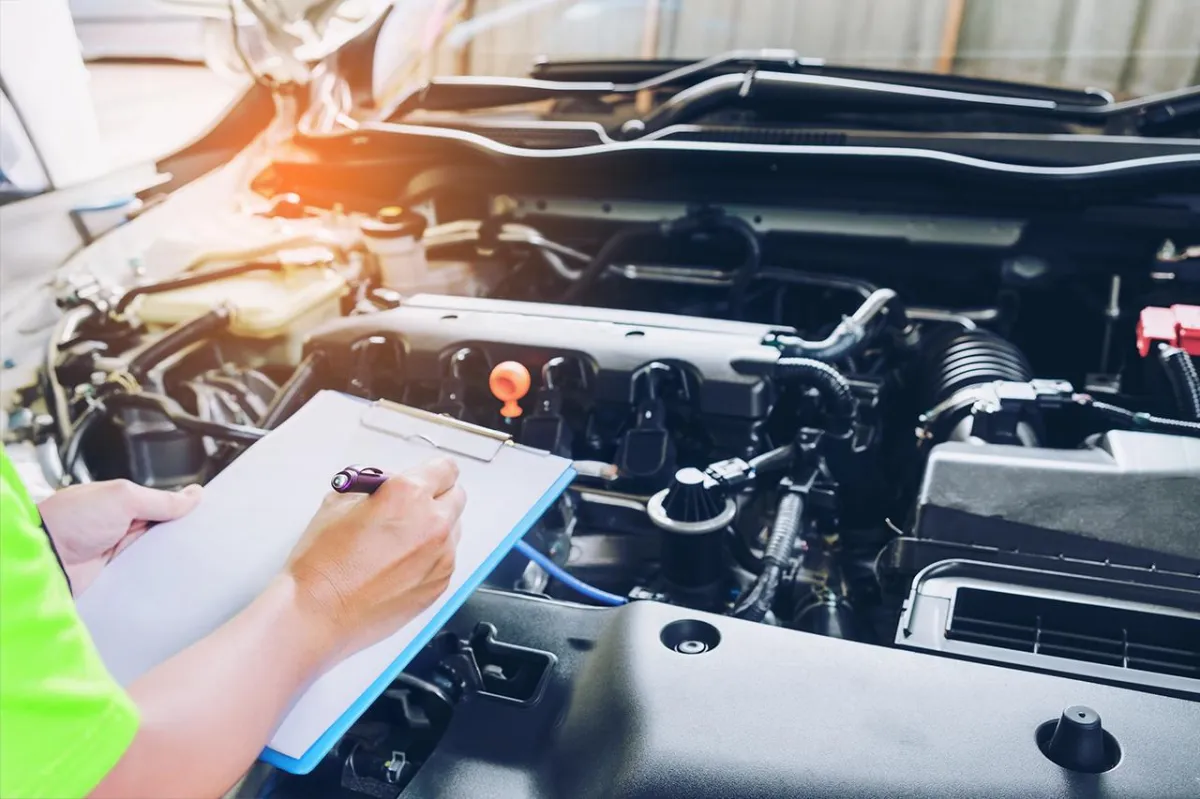
Drivetrain & CV Axle Boot Check
Recommended For: Front-wheel, rear-wheel, and all-wheel drive vehicles
Frequency: Every 30,000–50,000 miles or if clicking/popping sounds occur while turning
Purpose: Detects worn joints or torn axle boots before they cause drivability issues or joint failure

Exhaust System & Emissions Check
Recommended For: Vehicles due for inspection, or showing signs of reduced performance or strong fuel smell
Frequency: Annually or as part of emissions test prep
Purpose: Identifies rust, leaks, or sensor issues that affect emissions and fuel economy

Charging System & Alternator Test
Recommended For: Vehicles with dimming lights, hard starts, or electrical malfunctions
Frequency: Every 12 months or as part of routine service
Purpose: Ensures proper charging voltage and protects against battery failure and dead starts

Why Preventative Inspections Pay Off
Avoid unexpected breakdowns
Save money by fixing issues early
Increase resale value with full maintenance records
Feel confident on long trips or before seasonal weather changes

After hours drop off directions
Open up Drop-off box
at our admin office
Complete & sign the form-
place keys in side the envelope
Place envelope with the
keys in the slot
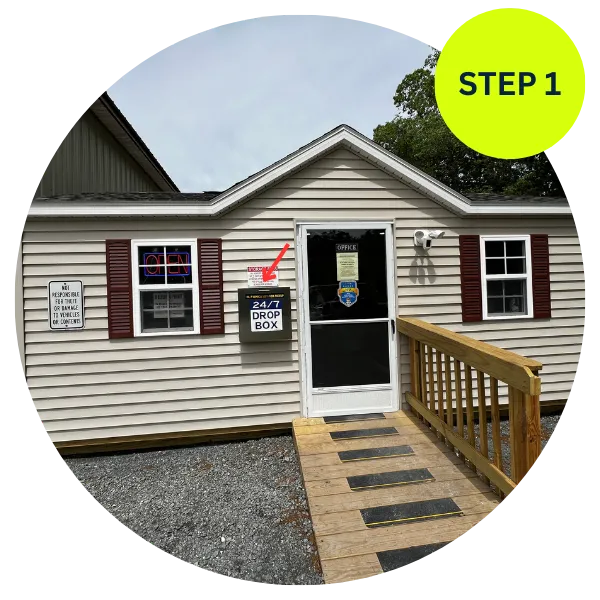
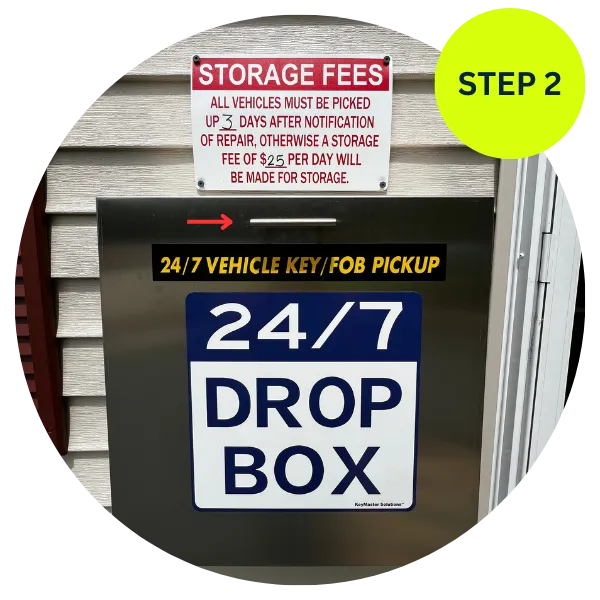
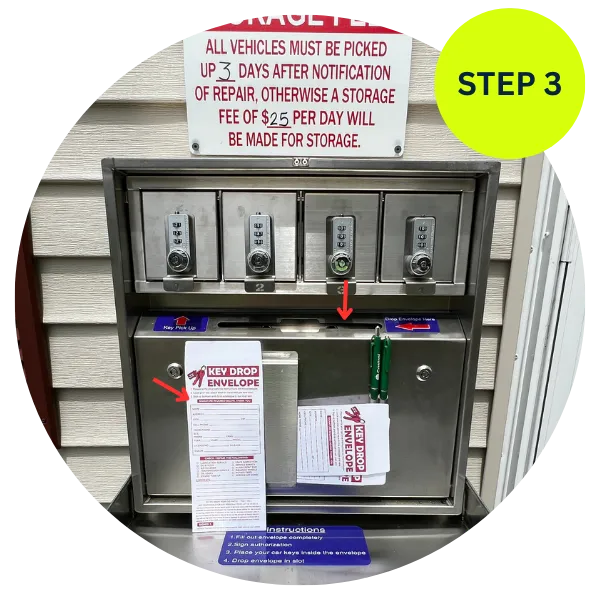
OUR SERVICES
Explore our comprehensive range of professional services today.
Oil Change
We check your brakes, air filters was well as set tire pressure. We check all fluids that are accessible and top off washer fluid with every oil change.
Brake Services
Inspection, repair, and replacement of brake pads, rotors, and fluid.
Need Estimate
Need Estimate for Specific Car Repairs
Routine Maintenance
Oil changes, tire rotations, fluid checks, and filter replacements. Top to Bottom vehicle inspection with our Multi Point Inspection process
Light Bulb Changes
Light Bulb Changes for signal lights, headlights or brakelights. Pricing based on type of light bulbs.
Engine Diagnostics and Repair
Identifying and fixing issues related to the engine, including tune-ups.
Transmission
Services
Transmission fluid changes, repair, and replacement.
Suspension and Steering
Repair and maintenance of shocks, struts, and steering components including air suspension.
Exhaust System Services
Repair and replacement of mufflers, catalytic converters, and exhaust pipes.
Electrical System Repairs
Battery replacement, alternator repair, and fixing electrical issues.
AC and Heating Services
Maintenance and repair of air conditioning and heating systems including 1234YF for 2016 & up vehicles.
Tire Services -COMING SOON!
Tire installation, balancing, alignment, and repair.
OUR PRICES
SERVICE
DESCRIPTION
PRICES
Starting at:
Diagnostic
Check Engine Light
$150
Oil Change
Synthetic Lube
$90
Tire Rotation
Tire Rotation
$30
Brakes
Brake Packages
$425
A/C
134A Recharge
$250
A/C
1234YF Recharge
$425
Inspection
Top To Bottom Vehicle Inspection
$240
Transmission
Transmission Service
$300
* There is a 4% Credit Card Fee Applied for Repairs over $500
WHY CHOOSE US
From routine maintenance to major repairs, we’ve got you covered.

Family-owned and operated since 2005

Certified, experienced mechanics

Honest pricing, reliable service
TESTIMONIALS
TESTIMONIALS

We Service all National and Foreign cars and trucks
Expert Automotive Repair and Maintenance Services
Accidents can happen unexpectedly. At Long Neck Auto, we strive to simplify and enhance your auto body repair experience. Upon arrival, you'll receive a precise computerized estimate, and our team of experts will ensure your vehicle looks as good as new.
We Make Car Repairs Fast & Easy
No need to wait, Pick Service and schedule your repairs in 3 easy steps
01
Book an Appointment
Call or schedule a Vehicle Estimate - Thorough diagnostics and transparent quotes
02
Repair & Service
Have your car repaired by certified professionals.
03
Pickup Your Vehicle
Backed by our Neighbor warranty on parts and labor
WHY CHOOSE US
From routine maintenance to major repairs, we’ve got you covered.




Trusted Local Shop
Family-owned and operated. Proudly serving Long Neck, Millsboro, and surrounding areas since 2005
Skilled Technicians
Certified, experienced mechanics handle all makes and models
Transparent Pricing
Honest pricing, fast & reliable service estimates, no upselling, no surprises.
Customer-Focused
We treat your vehicle with the care and precision it deserves. Reliable service for our neighbors!
SHOP LOCATION
Call Us
If you have questions or comments about our services, give us a call.
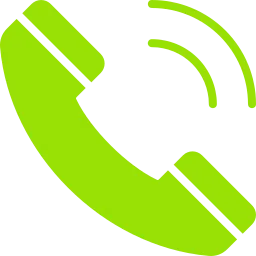
Phone
+1 (302) 297 - 8162

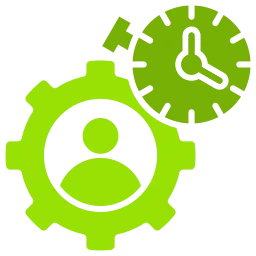
Office Hours
Mon - Fri :
Sat - Sun :Closed
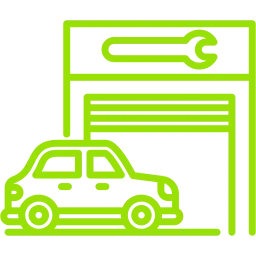
Office
32909 Long Neck Rd
Millsboro, DE 19966
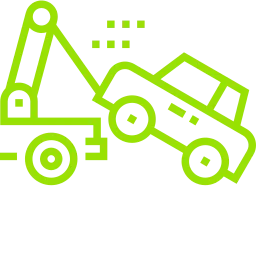
Towing Services
1 (302) 339-2692 - Barnes Towing

Innovation
Affordable solutions.

Integrity
Honesty and transparency.

Excellence
Top-notch services.
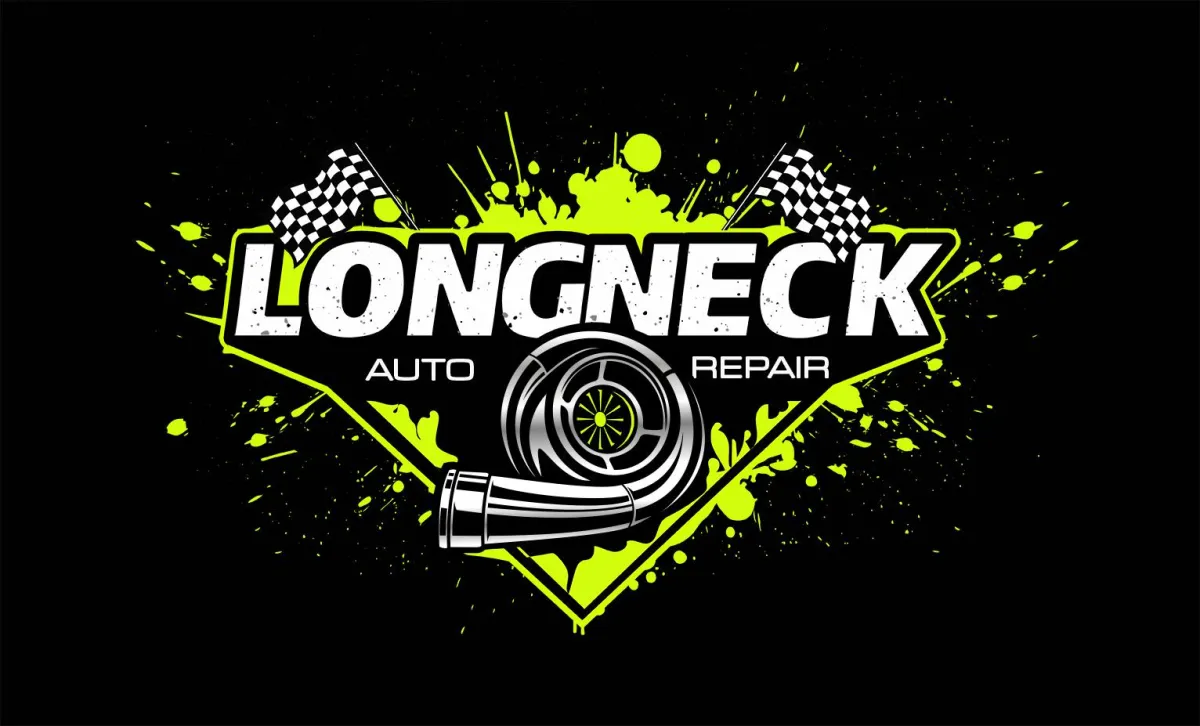
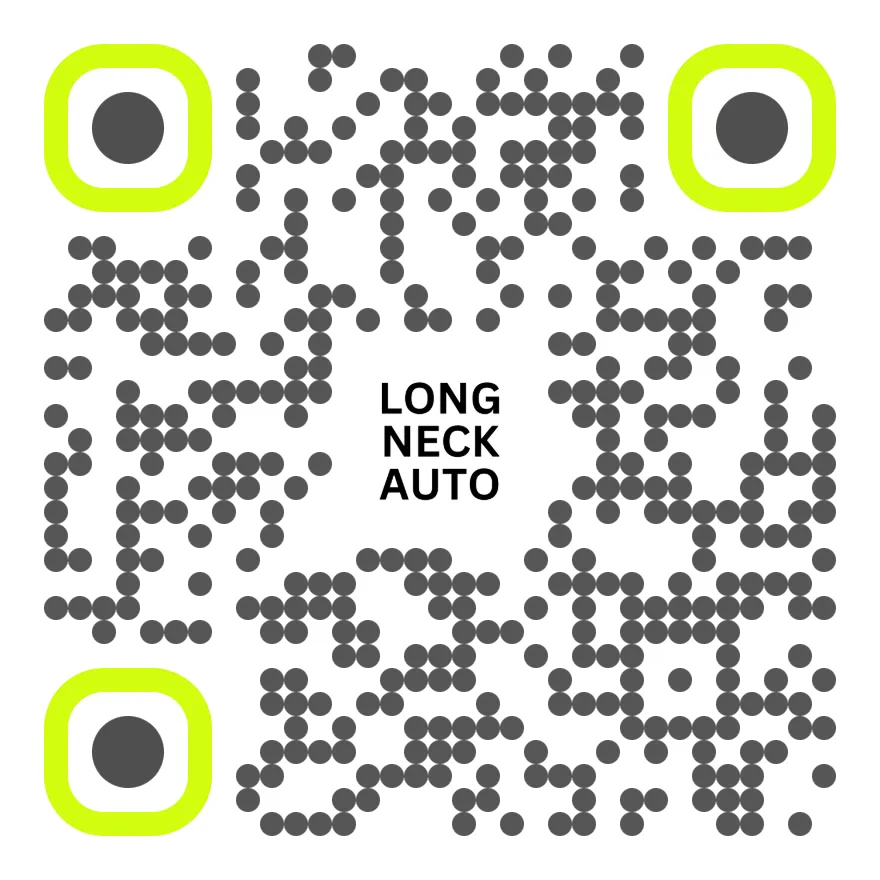
32909 Long Neck Rd
Millsboro, DE 19966
SHOP
LEGAL
OUR SERVICES
ABOUT
LOCATIONS WE SERVE
© Copyright 2026. Long Neck Auto. All Rights Reserved.
